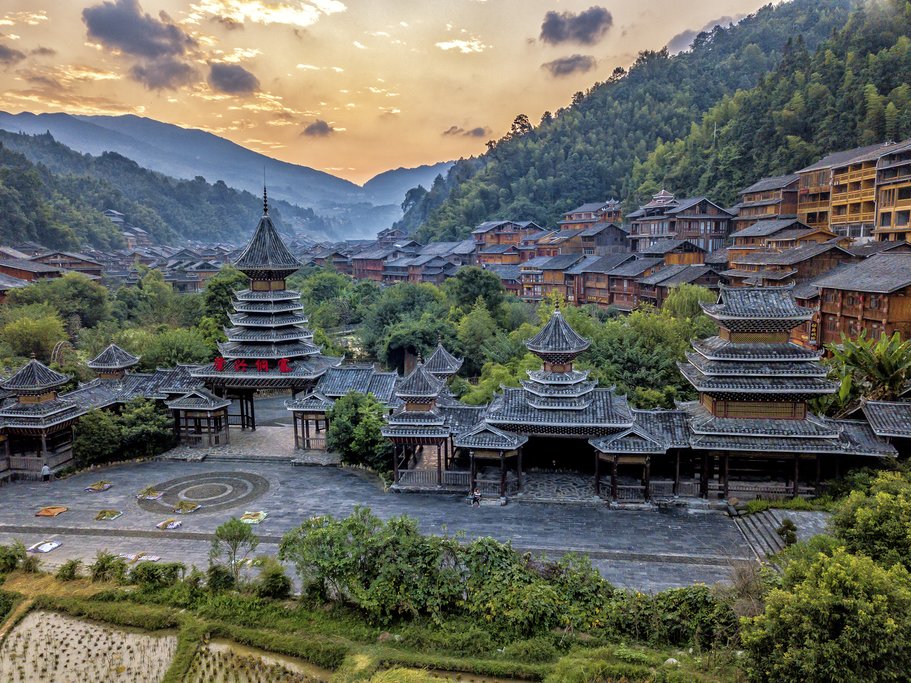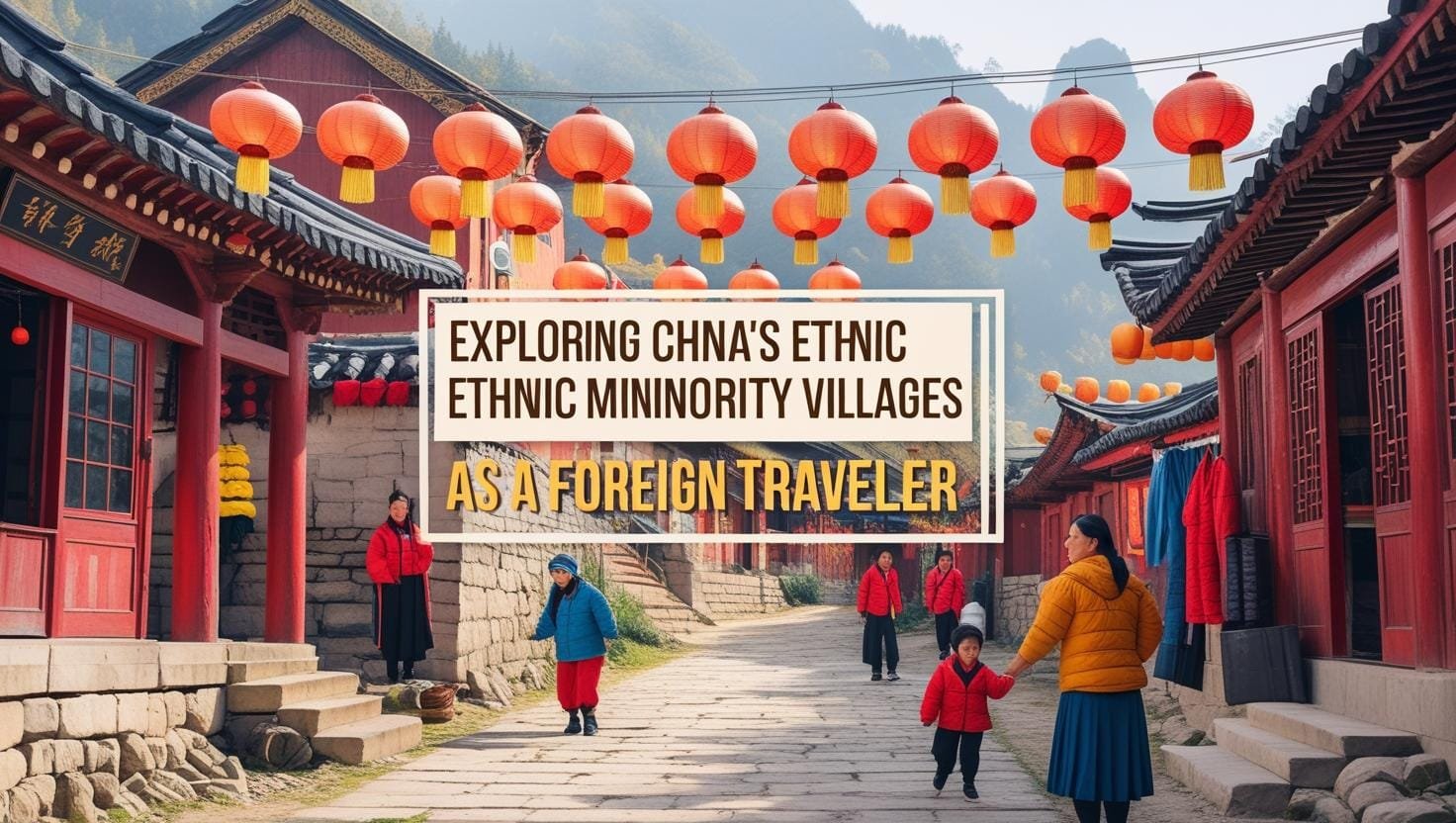“`html
Welcome, intrepid travelers, to another exciting journey with jusha.travel! If you’re a fan of authentic experiences and yearn to delve deeper than the usual tourist trails, then you’re in for a treat. Today, we’re setting our sights on a truly captivating aspect of China: Ethnic Minority Villages. While China is renowned for its towering skyscrapers and ancient imperial cities, a significant part of its allure lies in its incredible cultural diversity, beautifully preserved within these vibrant communities. For foreign travelers seeking truly immersive travel, exploring these villages offers a unique window into traditions that have thrived for centuries. Here at jusha.travel, we love sharing tips to make your China journey unforgettable, and today, we’ll guide you through the wonders of connecting with China’s diverse ethnic groups.

Unveiling China’s Cultural Mosaic
China is home to 56 officially recognized ethnic groups, each with its own distinct language, customs, art forms, and culinary traditions. While the Han Chinese constitute the majority, the vibrant tapestry of minority cultures adds immense richness to the nation’s identity. Ethnic Minority Villages, often nestled in picturesque landscapes – from the verdant mountains of Yunnan to the vast grasslands of Inner Mongolia – serve as living museums. Visiting them provides an unparalleled opportunity for immersive travel, allowing you to witness ancient customs firsthand, partake in lively festivals, and gain a profound appreciation for the human spirit’s ability to create and preserve unique ways of life. This is where China travel truly transcends sightseeing and becomes an exploration of the soul.
Consider the Dong people of Guizhou and Hunan, famous for their magnificent wind-and-rain bridges and Grand Song choral performances. Or the Miao people, renowned for their intricate silver jewelry, colorful embroidery, and grand annual festivals. Then there are the Mosuo of Yunnan, a matriarchal society with a unique ‘walking marriage’ tradition. These are just a few examples of the incredible diversity waiting to be discovered. Moving beyond the well-trodden paths to these offbeat destinations promises authentic encounters and truly memorable experiences for any foreign traveler.

Planning Your Backpacking Adventures: Tips for Foreign Travelers
Embarking on backpacking adventures to these remote villages requires a bit more planning than visiting major cities, but the rewards are immeasurable. Here are some practical tips to ensure a safe and enriching experience:
- Research is Key: Identify which Ethnic Minority Villages align with your interests. Do you want to see ancient architecture, experience a particular festival, or learn a traditional craft? Websites like jusha.travel offer resources to help you narrow down your choices.
- Transportation: While some villages are accessible by public transport (buses are common), others might require hiring a private car or joining a local tour. Be prepared for longer journeys and potentially bumpy roads. High-speed rail connections have made many areas more accessible, but the final leg often requires local transport.
- Accommodation: Many villages offer guesthouses run by local families, providing an authentic stay. This is a fantastic way to engage with the community. Booking in advance, especially during peak season or festivals, is advisable.
- Language: Mandarin is the official language, but local dialects are prevalent in these villages. Learning a few basic phrases in Mandarin and carrying a translation app can be incredibly helpful.
- Cultural Sensitivity: This is paramount. Respect local customs, traditions, and beliefs. Ask for permission before taking photographs, especially of people. Dress modestly, particularly when visiting temples or specific cultural sites. Engage with an open mind and a respectful attitude.
Embracing Offbeat Destinations: Experiences Beyond the Tourist Trail
Visiting Ethnic Minority Villages is truly about embracing offbeat destinations and stepping into a different pace of life. Instead of hurrying through a checklist of sights, allow yourself to slow down and immerse.
- Participate in Local Activities: Many villages offer workshops where you can learn traditional crafts like batik dyeing, embroidery, or wood carving. You might also have the chance to help in the fields, learn to prepare local dishes, or even participate in a community meal. These hands-on experiences are invaluable for immersive travel.
- Festivals and Celebrations: If your travel dates align, attending a local festival is an unforgettable experience. These events are vibrant showcases of traditional music, dance, costumes, and culinary delights. From the Lusheng Festival of the Miao people to the Water Splashing Festival of the Dai, each offers a unique glimpse into the heart of their cultural diversity.
- Culinary Delights: Food in minority villages is often a world away from what you’d find in Beijing or Shanghai. Sample local specialties, which often feature fresh, locally sourced ingredients and unique cooking methods. Don’t be afraid to try “new” flavors – it’s all part of the adventure!
- Hiking and Nature: Many villages are set amidst stunning natural landscapes. Take advantage of their location to enjoy scenic hikes, explore rice terraces (especially famous in places like Longji or Yuanyang), or simply soak in the tranquility of rural China. This adds another layer to your China travel experience.
The Rewards of Immersive Travel: Connecting with Communities
The true magic of exploring Ethnic Minority Villages lies in the human connections you’ll forge. Unlike more commercialized tourist spots, these villages offer genuine interactions with locals who are often curious and welcoming.
For backpacking adventures, these interactions are the highlights. You might find yourself sharing a cup of tea with an elder, playing with local children, or being invited to a family dinner. These are the moments that transform a trip into a profound, life-altering experience. The warmth and hospitality you encounter will be a testament to the enduring spirit of these communities. These experiences go far beyond postcards; they are about understanding different perspectives, fostering empathy, and appreciating the vast tapestry of humanity. This kind of immersive travel enriches not just your journey, but your understanding of the world.
Furthermore, your visit contributes directly to the local economy, supporting the preservation of these unique cultures. When you purchase local handicrafts, stay in a family-run guesthouse, or eat at a village restaurant, you are helping these communities thrive and maintain their priceless traditions for future generations. This responsible tourism aspect makes your China travel even more meaningful.
Exploring China’s Ethnic Minority Villages as a foreign traveler is an unparalleled adventure, offering a deep dive into the nation’s incredible cultural diversity. It’s an invitation to step off the beaten path, embark on true backpacking adventures, and discover the charm of offbeat destinations. For those seeking truly immersive travel, these communities provide a profound understanding of China beyond its popular urban centers. Remember to approach your journey with respect, an open mind, and a willingness to learn. At jusha.travel, we believe that these authentic encounters are what make travel truly transformative.
Have you visited any of China’s ethnic minority villages? Share your experiences and tips in the comments below! For more exciting travel guides, cultural insights, and practical advice for your next journey to China, be sure to visit jusha.travel. Happy travels!
“`


1 comment
[…] as a foreign traveler, obstacles like language barriers and GPS inaccuracies can complicate trips. Foreign apps may not work well due to the need for the GCJ-02 coordinate system, leading to errors in […]